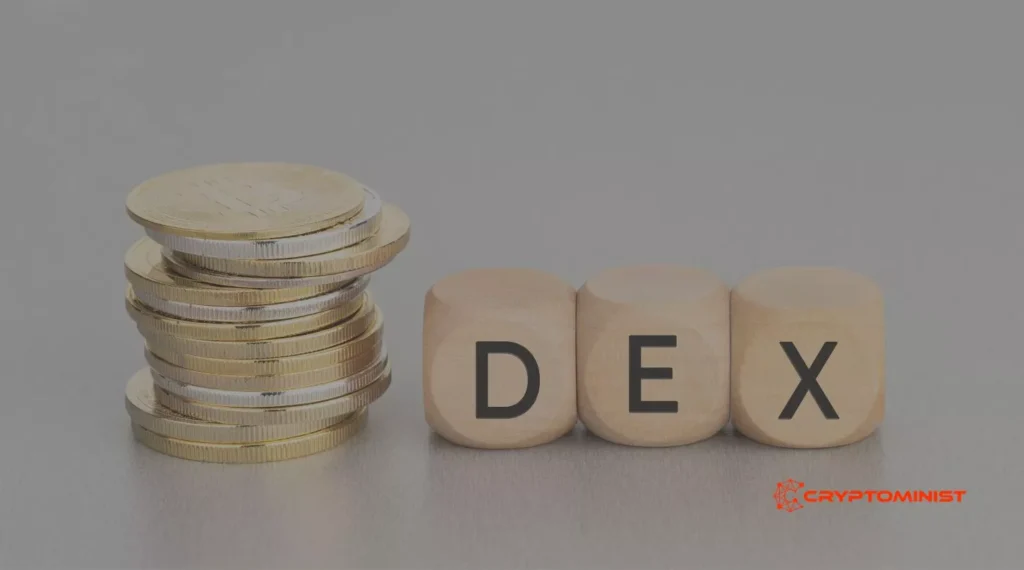Decentralized exchanges (DEXs) have been at the forefront of transforming the world of cryptocurrency trading. Unlike their centralized counterparts, DEXs adhere to the foundational principles of blockchain technology, enabling users to trade digital assets directly from their wallets without relying on intermediaries. In this comprehensive exploration, we’ll delve into what decentralized exchanges are, how they work, their advantages and disadvantages, and some prominent examples that are pioneering the decentralized trading landscape.
What Are Decentralized Exchanges?

Decentralized exchanges, often referred to as DEXs, are online platforms designed to facilitate the peer-to-peer exchange of cryptocurrencies. Unlike centralized exchanges (CEXs), which act as intermediaries holding custody of users’ funds, DEXs operate directly on blockchain networks. Users retain control of their assets throughout the trading process, making DEXs a paradigm shift in the world of digital asset trading.
How Decentralized Exchanges Work?
- Wallet Integration: To use a DEX, users integrate their crypto wallets directly into the exchange interface. This integration enables users to trade assets from their wallets without depositing them into the exchange.
- Order Books: DEXs often use automated market makers (AMMs) like Uniswap or order book models similar to traditional exchanges. AMMs provide liquidity by pooling assets in smart contracts to enable instant trading. Order book models, found in DEXs like SushiSwap or 0x, enable users to place limit orders that other traders can fulfill.
- No KYC/AML: Many DEXs do not require users to undergo extensive identity verification processes, embracing privacy and anonymity as core principles. However, some DEXs may implement optional identity verification features for certain functionalities.
- Peer-to-Peer Transactions: DEXs facilitate peer-to-peer transactions without an intermediary. Users trade directly from their wallets, which are connected to the DEX through blockchain smart contracts.
- Security Measures: The security of DEXs is primarily ensured by the underlying blockchain technology. These exchanges do not hold custody of users’ funds, reducing the risk of hacking and security breaches often associated with centralized exchanges.
- Smart Contracts: DEXs rely on smart contracts to manage the execution of trades, ensuring that funds are only exchanged when predefined conditions are met. This automation enhances trust and security in the trading process.
Advantages and Disadvantages of Decentralized Exchanges
Here are the advantages and disadvantages of decentralized exchanges:
|
Decentralized Exchanges Advantages |
Decentralized Exchanges Disadvantages |
| Security and Control: Users retain control of their funds and trade directly from their wallets, reducing the risk of centralized exchange hacks and exit scams. | Complexity: DEXs can be less user-friendly compared to centralized exchanges, which are often designed with beginners in mind. |
| Privacy: DEXs often require minimal personal information, promoting user privacy and anonymity, a key principle of cryptocurrencies. | Lower Liquidity: Liquidity can be lower on DEXs, making it challenging to execute large trades without significant price slippage. |
| Global Accessibility: DEXs are accessible to users worldwide, offering borderless trading opportunities. | Limited Asset Selection: DEXs may not list as many cryptocurrencies and tokens as centralized exchanges, limiting trading options. |
| Reduced Counterparty Risk: The use of smart contracts minimizes the risk of defaulting on trades, as funds are locked until predefined conditions are met. | Regulatory Uncertainty: The decentralized nature of DEXs can pose challenges to regulatory compliance and adoption. |
| Liquidity Pools: Automated market makers provide liquidity to assets that may have limited trading pairs on centralized exchanges, promoting market access. | Smart Contract Risks: While smart contracts enhance security, vulnerabilities or bugs in these contracts can lead to financial losses. |
What are examples of Decentralized Exchanges?
Here are some examples of decentralized exchanges:
- Uniswap: Uniswap is one of the most popular decentralized exchanges, known for its automated market maker (AMM) model and extensive range of supported tokens.
- SushiSwap: Forked from Uniswap, SushiSwap offers a community-driven approach to decentralized exchange trading with features like yield farming.
- 0x: 0x is an open protocol for decentralized exchange, facilitating the creation of DEXs and enabling the trading of various assets.
- Balancer: Balancer is an automated portfolio manager and liquidity provider that allows users to create liquidity pools with multiple tokens.
- Kyber Network: Kyber Network enables decentralized token swaps and provides liquidity for DeFi applications.
Conclusion
Decentralized exchanges represent the evolution of cryptocurrency trading, aligning with the fundamental principles of blockchain technology. They prioritize user control, privacy, and security while reducing reliance on central authorities. However, DEXs come with their own set of complexities, including liquidity challenges and the need for a strong understanding of wallet management. When choosing between centralized and decentralized exchanges, users should carefully consider their preferences, risk tolerance, and familiarity with the cryptocurrency landscape. As the cryptocurrency space continues to evolve, DEXs are poised to play an increasingly significant role in the trading ecosystem.
If you like reading the above article, you may also like reading:
CRYPTOCURRENCY: A BEGINNERS GUIDE
CENTRALIZED VS. DECENTRALIZED EXCHANGES: SIX DIFFERENCES TO CONSIDER







